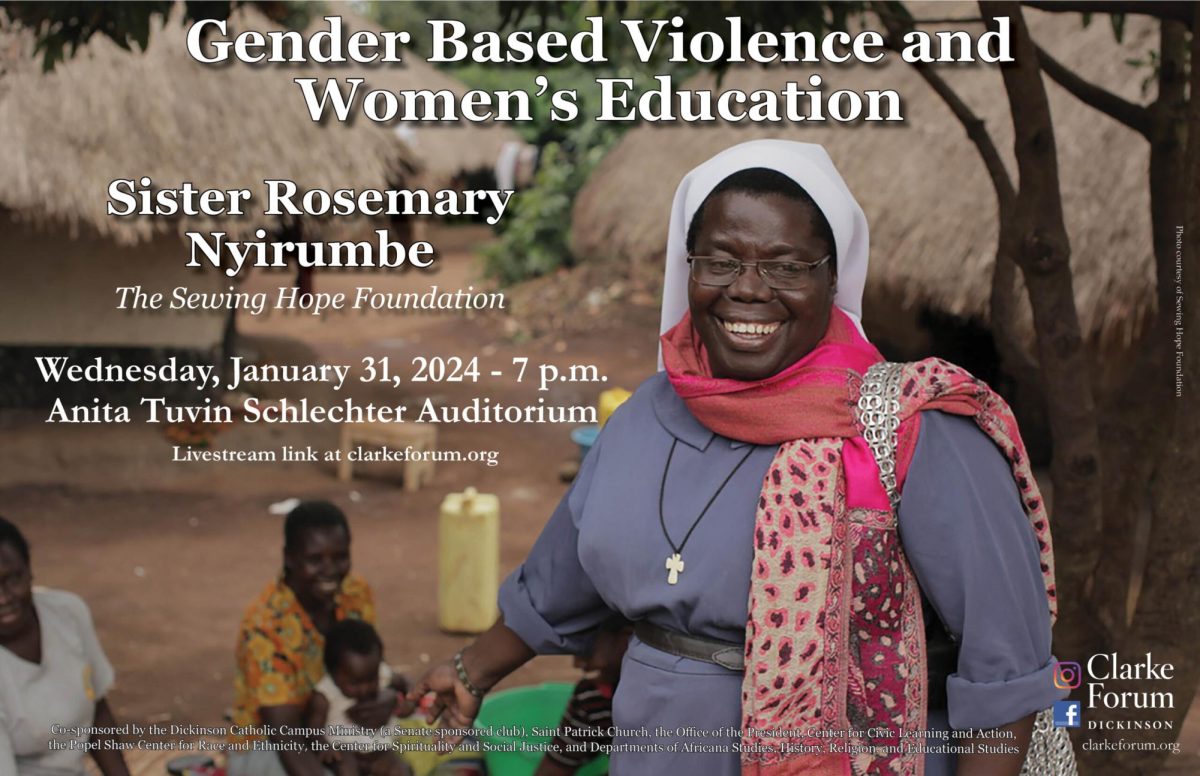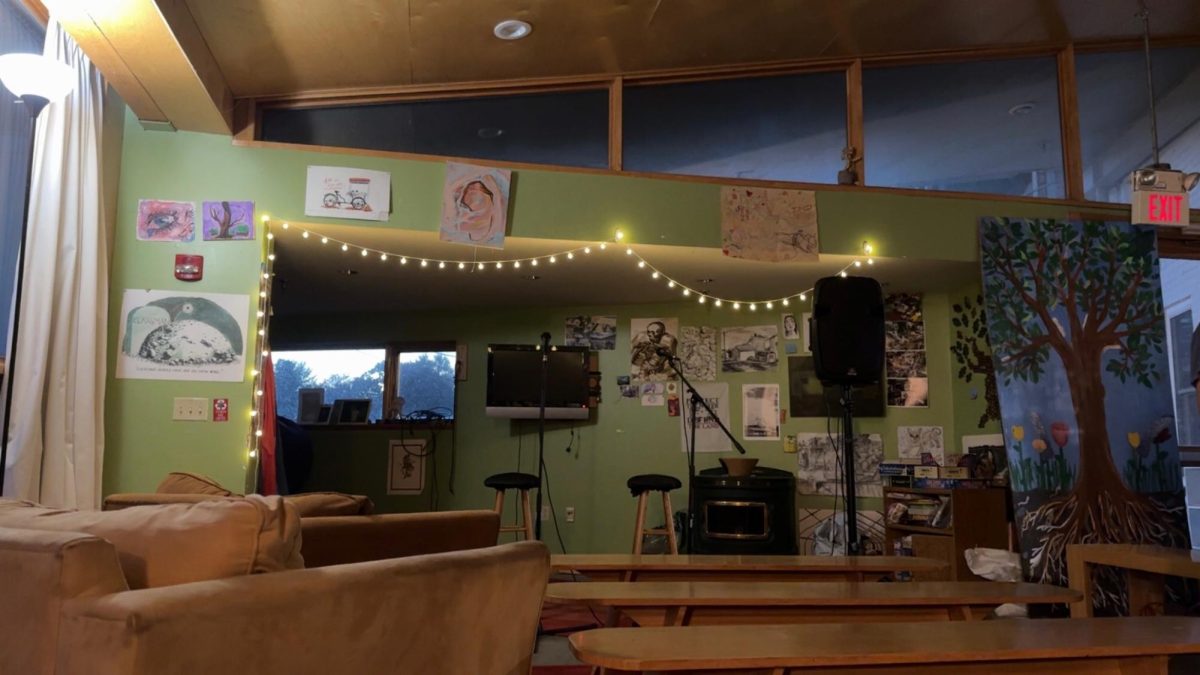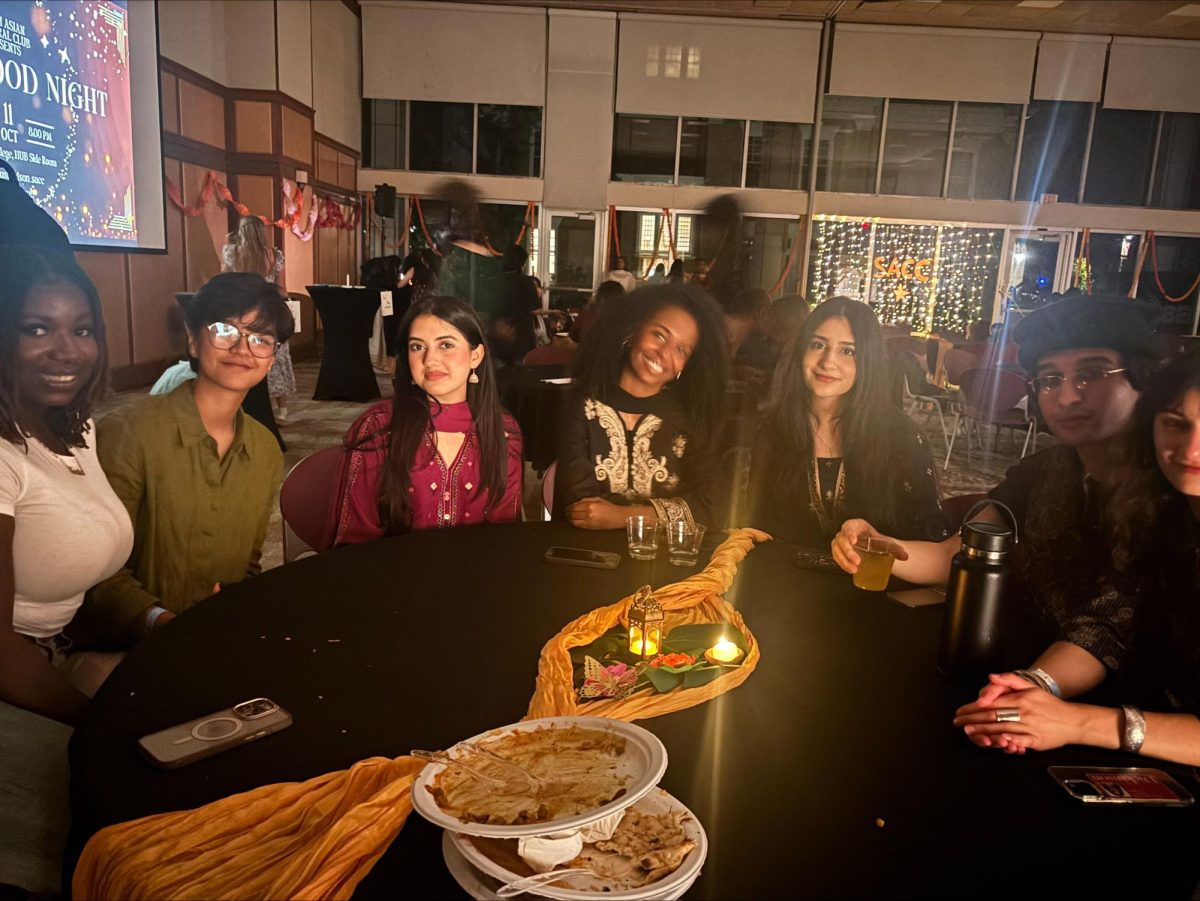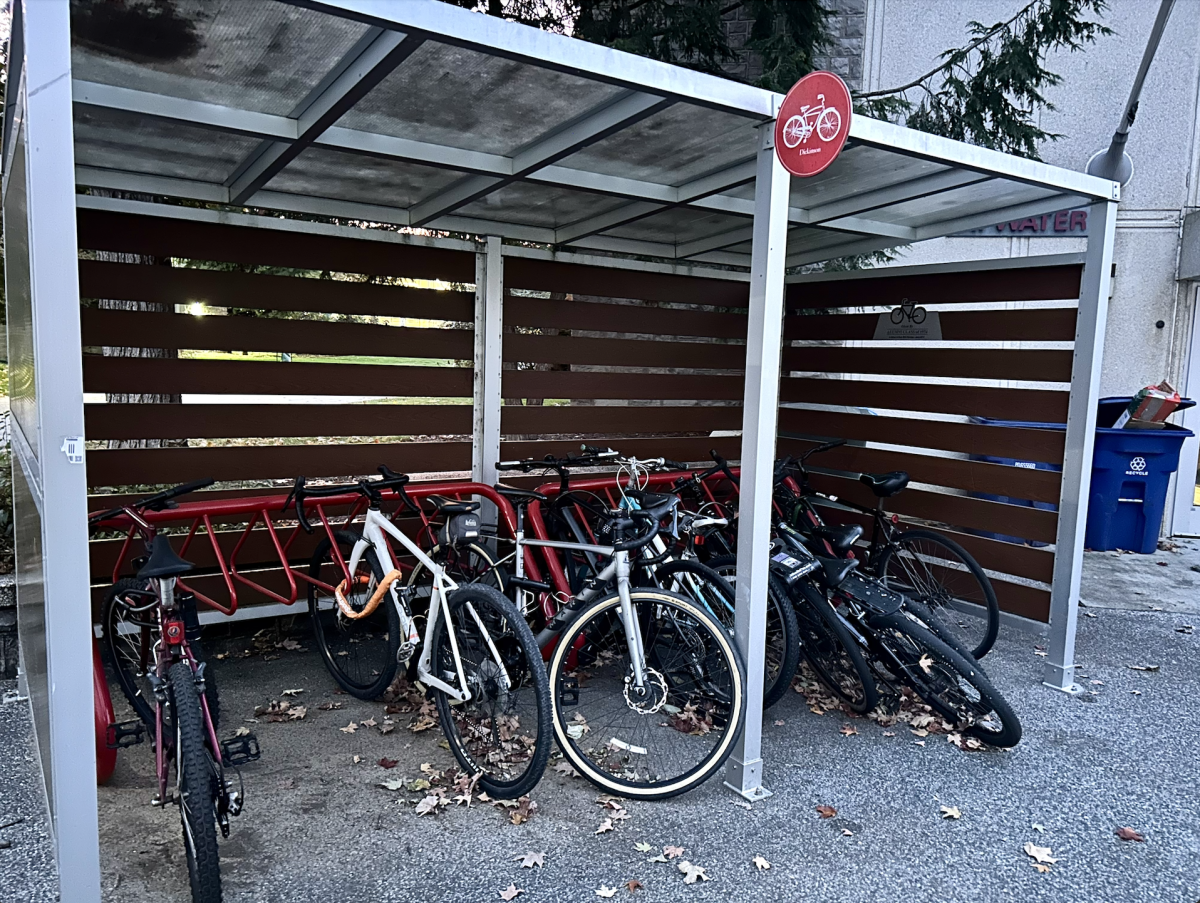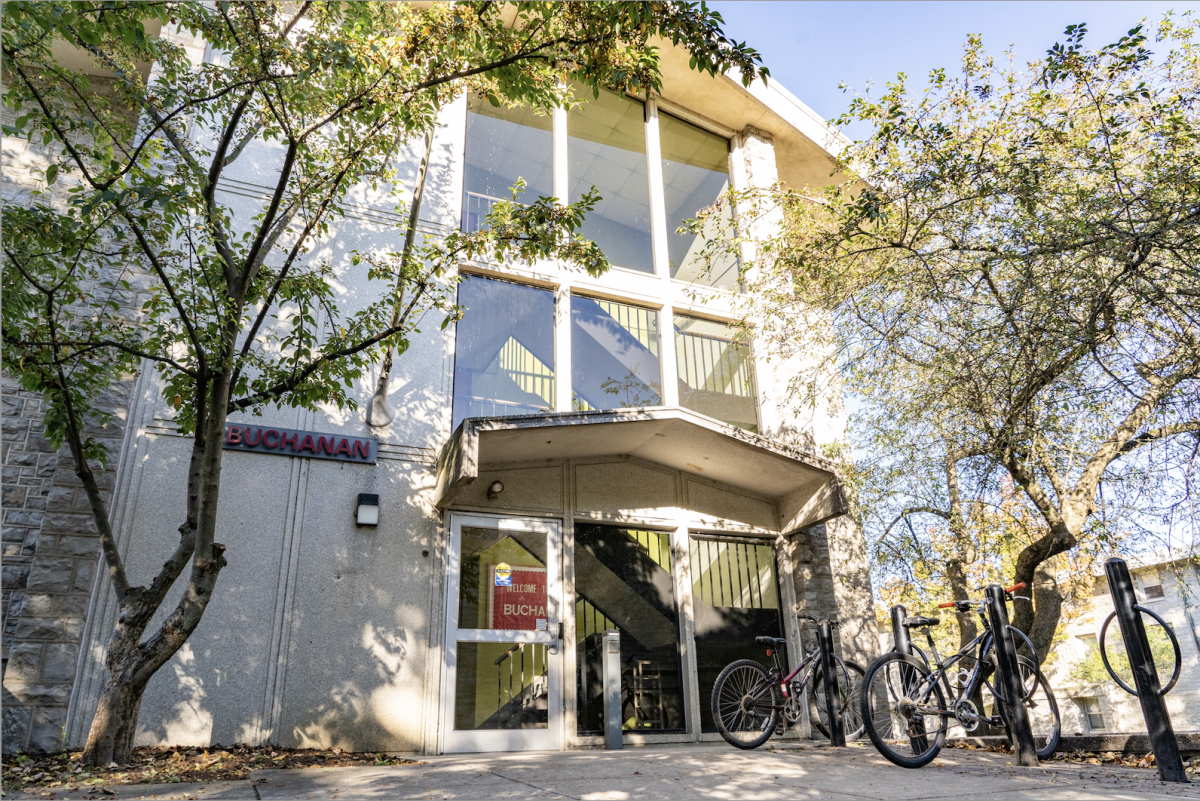Sister Rosemary Nyirumbe, an anti-violence activist and educator in Uganda, recently gave a Clarke Forum lecture on gender-based violence and women’s education at Dickinson. She addressed the roots of gender-based violence and the importance of implementing education in the process of healing.
Nyirumbe, a member of the Sisters of the Sacred Heart of Jesus, has spent the majority of her life devoted to bringing hope and security to women and children whose lives have been affected by the atrocities of war.
Violence has reigned over northern Uganda and South Sudan for the past few decades, led by the Lord’s Resistance Army’s (LRA) fight against the Ugandan government. Sister Rosemary gave a brief presentation on the horrifying acts committed by the LRA, including abductions, murders, child sexual slavery and soldier training. Around 60,000 children have been kidnapped by the army, and according to Sister Rosemary, most of them were forced to participate in the abduction of children themselves.
Hopelessness clouded her when she first started her anti-violence work, Nyirumbe told the audience but by interacting with the victims, she realized she only had to listen. Amid conflict, she found education to be the remedy for recovering from trauma and pain. Nyirumbe directs the Monica’s Girls Tailoring Center in Gulu, Uganda, which has enrolled 3,000 girls since 2002 and serves as a full-time sanctuary for women and children to rebuild their lives by learning practical skills like sewing.
Nyirumbe gave a beautiful explanation of sewing as a metaphorical act of mending the brokenness of the women’s lives while they learn to attach the fabrics together. This turned out to be both productive in helping the women process their emotions and providing necessary skills for their futures. With the school and Sister Rosemary’s help, many have gone out into the world as self-sufficient women with jobs and properties, defying dominant Ugandan narratives about women.
Nyirumbe’s lecture discussed the roots of gender-based violence. She believes it is traced back to gender inequality, developed through social constructions on gender norms, which are deeply embedded into our cultures.
The detrimental consequences of gender-based violence are often directed toward young girls, one main reason why Nyirumbe emphasizes the importance of education for women and girls.
With skill training and an understanding of the powers they hold, she argues, not only will the girls at her school come out with restored dignity and autonomy, but they will also be able to help those in the same unfortunate situation.
The concluding message Sister Rosemary brought to the audience was the value of collective advocacy. She confessed that it would have been impossible for her to have succeeded on her own, and this points to the need for a joint effort in battling against gender-based violence and gender inequality.
Nyirumbe urged everyone to offer their hands in this battle, because, she said, to be indifferent can never be a solution or can it be an excuse.



